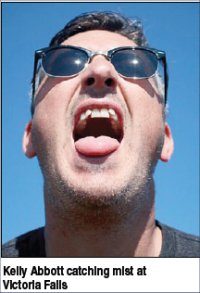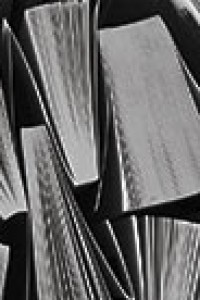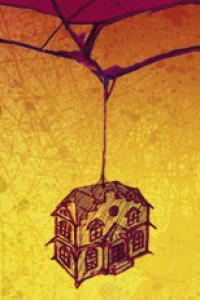Holly Black: Cons & Capers
 Holly Riggenbach was born November 10, 1971 in New Jersey. She attended Temple University and finished her BA in English at the College of New Jersey in 1994. She married her high-school boyfriend Theo Black in 1999, and nearly completed a library science degree from Rutgers before taking a break from her studies for her first book tour; she never returned. Black has worked as a production editor for medical journals and as a medical market researcher, and for a time was the editor of independent gaming magazine d8, where she met her sometime collaborator, artist Tony DiTerlizzi.
Holly Riggenbach was born November 10, 1971 in New Jersey. She attended Temple University and finished her BA in English at the College of New Jersey in 1994. She married her high-school boyfriend Theo Black in 1999, and nearly completed a library science degree from Rutgers before taking a break from her studies for her first book tour; she never returned. Black has worked as a production editor for medical journals and as a medical market researcher, and for a time was the editor of independent gaming magazine d8, where she met her sometime collaborator, artist Tony DiTerlizzi.
Black sold first story ‘‘Hades and Persephone’’ in 1997. Some of her short work has been collected in The Poison Eaters and Other Stories (2010). Black’s first novel, Tithe (2002), began her Modern Faerie series, which continued with Andre Norton Award-winner Valiant (2005) and Ironside (2006).
She wrote the popular children’s series The Spiderwick Chronicles, illustrated by DiTerlizzi: The Field Guide (2003), The Seeing Stone (2003), Lucinda’s Secret (2003), The Ironwood Tree (2004), and The Wrath of Mulgrath (2004). Companion books include Arthur Spiderwick’s Notebook for Fantastical Observations (2005), Arthur Spiderwick’s Field Guide to the Fantastical World Around You (2005), and Care and Feeding of Sprites (2006). A second series of related novels, Beyond the Spiderwick Chronicles, includes The Nixie’s Song (2007), A Giant Problem (2008), and The Wyrm King (2009). The series was filmed as The Spiderwick Chronicles (2008).
Her latest novels are the Curse Workers trilogy, about con artists in a world where some people can work magic through touch: White Cat (2010), Red Glove (2011), and Black Heart (2012).
Black also writes graphic novels, notably the Good Neighbors trilogy, illustrated by Ted Naifeh: Kin (2008), Kith (2009), and Kind (2010). She co-edited Geektastic (2009) with Cecil Castellucci, Zombies vs. Unicorns (2010) with Justine Larbalestier, and Welcome to Bordertown with Ellen Kushner (2011).
She lives with her husband in Amherst, Massachusetts.
Website: Holly Black
Excerpts from the interview:
 “My insane project was Curse Workers, because I love noir, crime caper films, and mobster films. I thought it would be really fun to write a magical world where I could play with some of the tropes from crime and caper novels. I was thinking about the heyday of organized crime, during Prohibition. By making magic illegal, I got to do some of that kind of Prohibition-era stuff, but set today, and with magic.
“My insane project was Curse Workers, because I love noir, crime caper films, and mobster films. I thought it would be really fun to write a magical world where I could play with some of the tropes from crime and caper novels. I was thinking about the heyday of organized crime, during Prohibition. By making magic illegal, I got to do some of that kind of Prohibition-era stuff, but set today, and with magic.
‘‘Research-wise, I read about crime organizations all over the world. I read about the five families on the East Coast of the US. I read about the LA mob, which is really interesting because in LA, there was a lot less focus on actual family or even ethnicity and a lot more pulling in people that you knew – which is more like what I had to do, because with curse workers, you don’t know who’s going to be born with the ability. It couldn’t just be dynastic.
‘‘I read Speed Tribes, a fascinating book about criminals, small-time and otherwise, in Japan, but the most fun was reading about con artists and their scams. There’s this great book called The Big Con which breaks down exactly how confidence scams work, and I realized just how much these classic cons were used again and again in cinema.”
…
‘‘In my mind the worst thing that could ever happen to you is to find out you’re the protagonist of a novel. It’s the worst news ever. My characters don’t want to do anything, they don’t want to be in a book – really bad things happen to people in books! Sometimes writers will talk about the way their characters talk to them and I envy that. I wish my characters would talk to me, but I can understand why they won’t. There’s probably some self-preservation in play.”
…
 ‘‘The thing I really love about fairies is that they are unlike vampires, or werewolves, or ghosts – they are creatures who have never been human and never will be human. They are unlike us – they have an alien moral system – but they look like us. There is something really fascinating about that, and Faerie is really interesting – it’s not just elves. Faerie is kelpies, banshees, nixies and pixies, sprites – it’s a universe of creatures with extremely peculiar behaviors, and there are a lot of really rich and fabulous stories to riff off of.
‘‘The thing I really love about fairies is that they are unlike vampires, or werewolves, or ghosts – they are creatures who have never been human and never will be human. They are unlike us – they have an alien moral system – but they look like us. There is something really fascinating about that, and Faerie is really interesting – it’s not just elves. Faerie is kelpies, banshees, nixies and pixies, sprites – it’s a universe of creatures with extremely peculiar behaviors, and there are a lot of really rich and fabulous stories to riff off of.
‘‘Fairy stories are full of really resonant metaphors. For instance, we all feel estranged at times from our families. We all feel like we don’t belong. That’s in the changeling stories – you are not the child you thought you were; you are not who you were raised to be. That person was taken and you were left in their place. That’s an incredibly resonant teenage metaphor. There are a lot of fairy tales about strangeness and otherness, and the idea that right around the corner, right out of the corner of your eye, there is the whole other world that is both dangerous and enticing. The idea that you can step sideways into a different world is incredibly compelling. Like the idea of the dark forest: how it’s a really dangerous place but also a magic place – you can come out transformed.”
…
‘‘Next I’m going to write a vampire book, because I am a crazy person who doesn’t realize this is probably the worst time ever to write a vampire book. I loved vampires when I was growing up. I read Poppy Z. Brite and Anne Rice, the Sonya Blue books by Nancy Collins, and I was a huge vampire fan. My giant research paper in eighth grade was on vampire folklore. But I never thought I’d write one. When vampires became so popular in YA a few years back, people asked, would I ever write one? I always said no, because what could I add that hadn’t already been written? But then I was asked to write a short story for an anthology, and wound up writing ‘The Coldest Girl in Coldtown’. For the first half of writing that story, I thought, ‘I don’t know what I’m doing here.’ But in the second half I was drawing on all the stuff I’d loved, and when I was done I toyed with the idea of writing it as a novel. The more I thought about it, the more I wanted to do it. So that will become a standalone novel, set in a world where vampires are both monsters to be hunted and celebrities to be fawned over.”






Thanks for the great interview, Locus! Holly is one of the best writers on the planet.